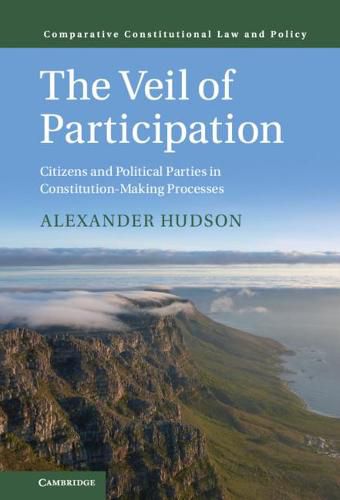Readings Newsletter
Become a Readings Member to make your shopping experience even easier.
Sign in or sign up for free!
You’re not far away from qualifying for FREE standard shipping within Australia
You’ve qualified for FREE standard shipping within Australia
The cart is loading…






Public participation is a vital part of constitution-making processes around the world, but we know very little about the extent to which participation affects constitutional texts. In this book, Alexander Hudson offers a systematic measurement of the impact of public participation in three much-cited cases - Brazil, South Africa, and Iceland - and introduces a theory of party-mediated public participation. He argues that public participation has limited potential to affect the constitutional text but that the effectiveness of participation varies with the political context. Party strength is the key factor, as strong political parties are unlikely to incorporate public input, while weaker parties are comparatively more responsive to public input. This party-mediation thesis fundamentally challenges the contemporary consensus on the design of constitution-making processes and places new emphasis on the role of political parties.
$9.00 standard shipping within Australia
FREE standard shipping within Australia for orders over $100.00
Express & International shipping calculated at checkout
Public participation is a vital part of constitution-making processes around the world, but we know very little about the extent to which participation affects constitutional texts. In this book, Alexander Hudson offers a systematic measurement of the impact of public participation in three much-cited cases - Brazil, South Africa, and Iceland - and introduces a theory of party-mediated public participation. He argues that public participation has limited potential to affect the constitutional text but that the effectiveness of participation varies with the political context. Party strength is the key factor, as strong political parties are unlikely to incorporate public input, while weaker parties are comparatively more responsive to public input. This party-mediation thesis fundamentally challenges the contemporary consensus on the design of constitution-making processes and places new emphasis on the role of political parties.